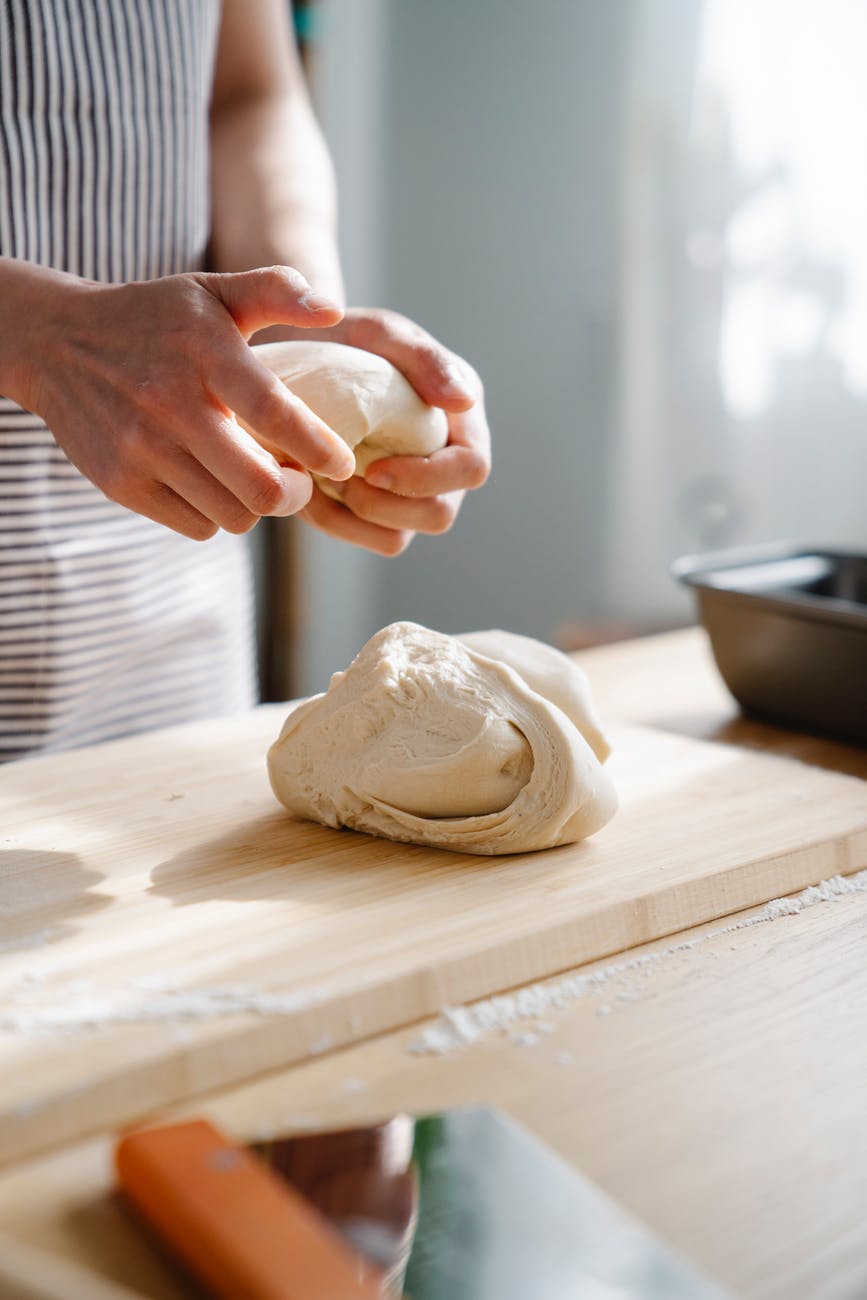Baking is one of the best skills you can develop in life. Learning how to make cookies, cakes, and a wide range of other desserts is truly a rewarding talent.
Before you can proceed with baking complex sweets, you first need to learn about the basics, which is almost always baking bread. You’ll need many things to make bread, and one of them is baking powder.
However, what happens if you run out of this ingredient? Can you still bake it? What happens to bread without baking powder? If you want to learn how to make bread without yeast or baking powder and whether or not the outcome would still be delicious, we’ve got you covered.
What Is Baking Powder?
Baking powder is a chemical ingredient that produces carbon dioxide when activated with a liquid and an acid. As such, baking powder allows all sorts of delicacies to rise or become fluffy.
Baking powder is usually made out of a mixture of bicarbonate or carbonate and a weak acid. We mentioned previously that acid activates the baking powder, so how do we prevent them from reacting prematurely before using them for baking purposes?
A third ingredient, usually cornstarch, is added to the mix. This ingredient functions as a buffer to keep the baking powder’s initial form. It’s only when all of these are mixed with a liquid and a stronger acid that the baking powder activates and releases carbon dioxide to make your bread fluffy.
What Happens To Bread Without Baking Powder?
What will happen to it if you skip the baking powder or any other leavening agent when baking bread? Since baking powder allows the dough to rise, skipping it would prevent the bread from getting fluffier. You’d still have the flavors of the ingredients you used on the bread, but it would be so dense that it’s quite difficult to eat.
Almost all types of bread require that the dough rises before or during baking.
Are There Alternatives?
As you may have inferred from above, baking powder plays a crucial role in making your bread fluffy and desirable to eat. So, what happens to bread without baking powder?
Well, humans have been making bread for more than 14,000 years, and baking powder was only developed in the 1840s. Ergo, it’s possible to make bread without it.
Yeast
One possible alternative to make bread without baking powder is by using yeast. Now, it’s important to note that there are numerous yeast strains, so you have to make sure that the one you use is baker’s yeast.
This ingredient is also a leavening agent like the powder, which means it’s also capable of expanding and making your bread fluffier when activated. The main difference is that it uses the fermentable sugars in the dough and converts them into carbon dioxide.
However, yeast has a slower reaction time than baking powder, which means it will take longer to expand and bake your bread.
Self-Rising Flour
On the other hand, you can also use a bread mixture where the flour itself is mixed with baking powder.
Self-rising flour is also slowly rising in popularity because of how handy it is in baking goods. A mixture of flour, salt, and baking powder, this ingredient is best used in biscuit recipes where you want the insides to be a little fluffy.
Cream of Tartar
Another ingredient or leavening agent you can use is the cream of tartar. This chemical compound has the same physical qualities as baking powder, except that the latter is finer.
Cream of tartar is a byproduct when fermenting wine and can expand bread, which is why they’re a popular substitute for baking powder.
Is There Bread Without a Leavening Agent?
We briefly mentioned that humans learned to make bread more than 14,000 years ago. Suffice it to say, none of the products or ingredients we mentioned above are available during those times.
So, how were our ancestors able to make bread?
Well, there’s actually one ancient method in which you wouldn’t need to use a leavening agent. When you mix flour with water, you produce a mixture called sourdough.
Without using any commercial leavening agent, sourdough rises by harvesting good bacteria in the environment. While it may take a significantly longer time to make it, sourdough often has a richer flavor than bread mixed with leavening agents.
Baking Without Leavening Agents
Baking powder and the other leavening agents we’ve mentioned above are simply chemical compounds that speed up the sourdough’s ability to rise and expand. This is done by exposing it to heat, acid, and liquid.
You can still make bread without baking powder; in fact, you may even have a tastier and more flavorful bread. However, if you’re not ready to spend a few days making your sourdough, we recommend that you stick to the baking powder.

